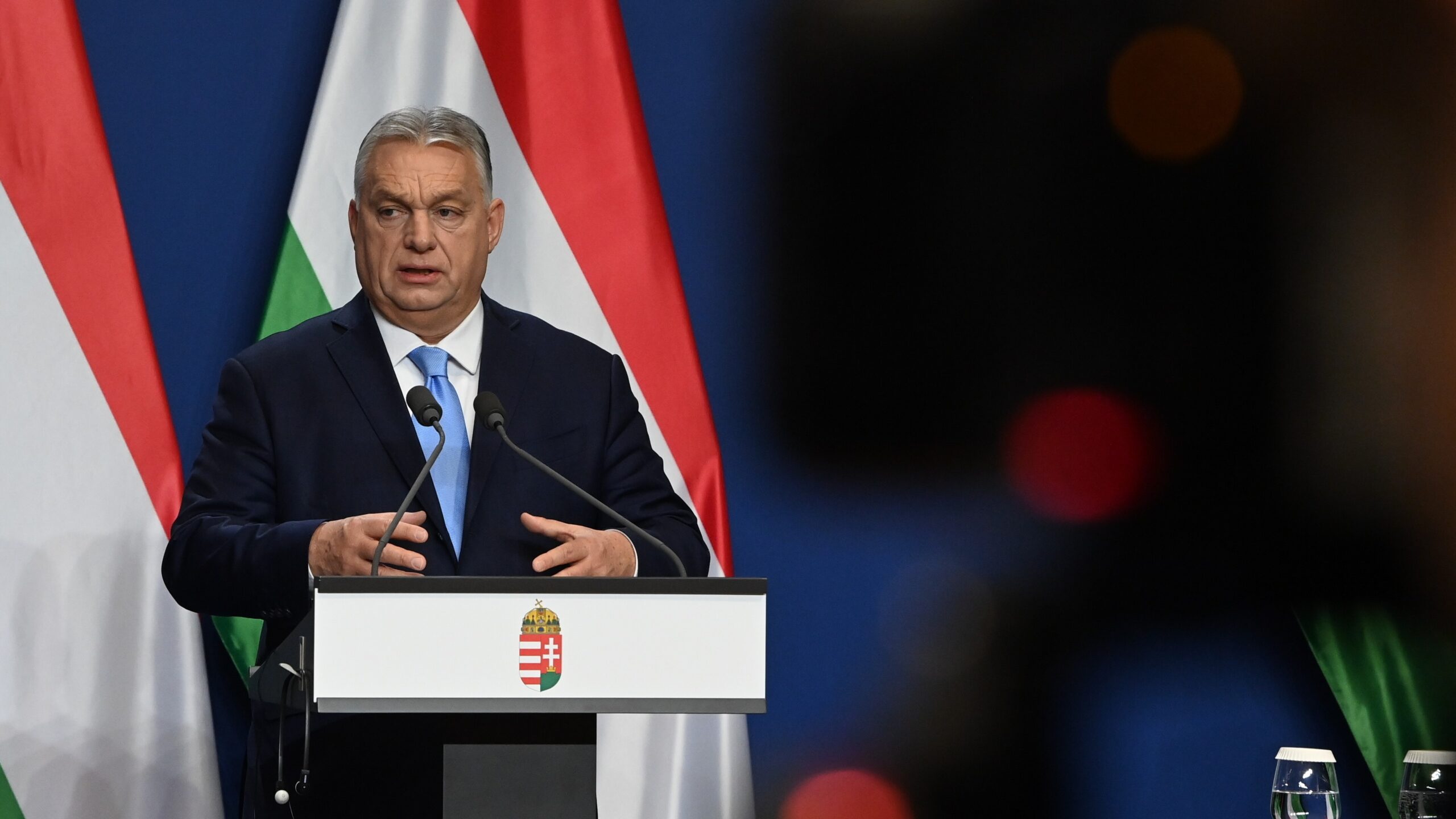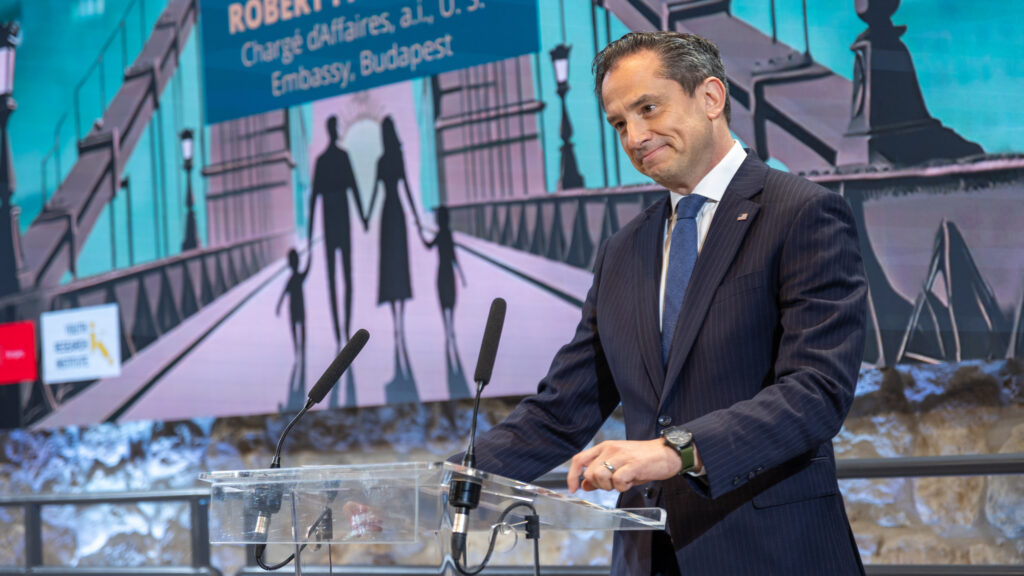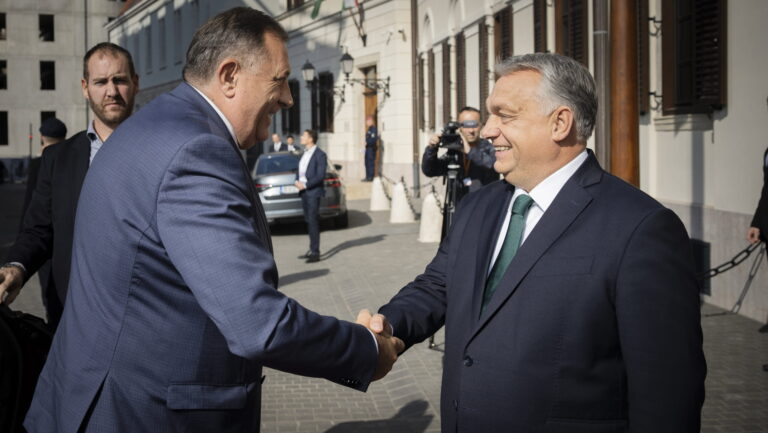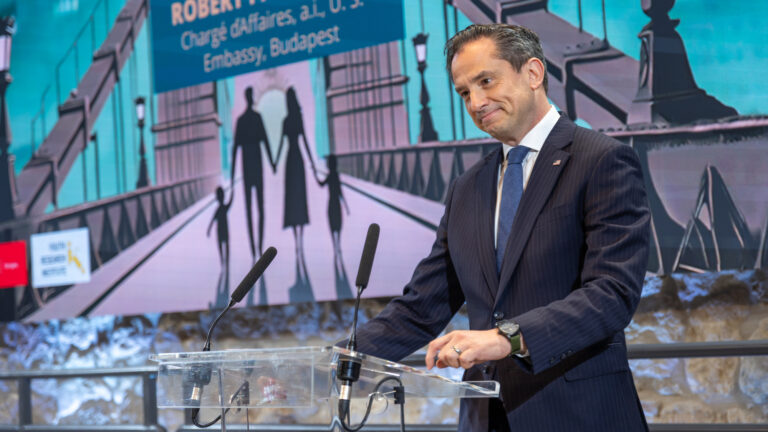Hungarian Prime Minister Viktor Orbán, in a candid year-end interview from the Carmelite Monastery, painted a picture of resilience and cautious optimism as the country navigates the lingering impacts of the Ukraine war and broader geopolitical shifts. Reflecting on the past three years, Orbán described them as a suffocating period dominated by conflict and its cascading effects.
‘The war next door has taken an enormous toll, not just on the region but on global stability,’ Orbán remarked. ‘Every day brings hundreds, sometimes thousands, of casualties, as an entire nation is emptied and devastated. Prices have soared, energy markets have collapsed, and no one can escape the impact.’
He likened the prospect of peace to emerging from underwater for a long-awaited breath of air, emphasizing that tangible progress is within reach.
On Hungary’s dual peace missions during its EU presidency, Orbán was frank: progress has been difficult, but the narrative is changing. While initial discussions of peace were taboo in European circles, Hungary’s persistent efforts have mainstreamed the conversation. ‘Today, everyone talks about peace,’ he noted, acknowledging that the war itself remains unresolved.
Orbán expressed hope for a Christmas ceasefire, revealing his efforts to persuade the Russian President to consider the idea, though Ukrainian reluctance remains a stumbling block.
He also addressed shifts in the global geopolitical landscape, pointing to what he described as an emerging ‘new reality’. On the battlefield, Russia is advancing, and Europe, in Orbán’s view, has already lost the war. ‘If Europe adopts the conflict as its own, the defeat will be even greater,’ he warned, advocating for a more restrained approach.
Orbán emphasized Hungary’s resilience amid economic challenges, noting that the nation has weathered the storm without squandering its future prospects. Key achievements include maintaining employment levels, preserving the thirteenth-month pension, and protecting family benefits. Hungary’s energy cost-reduction programme has ensured that its citizens pay some of Europe’s lowest rates for electricity and gas.
He highlighted the importance of diversifying Hungary’s economic partnerships to reduce reliance on Western markets. ‘When Europe falters, we must expand to other markets,’ he said, citing promising opportunities with both the US and China while advocating for continued pragmatic relations with Russia.
Discussing Hungary’s strained relations with Brussels, Orbán reaffirmed his government’s opposition to mandatory migration policies and gender ideology. He positioned Hungary as a counterforce to current EU policies, calling for a shift towards a Europe that prioritizes national sovereignty.
‘If we cannot transform Brussels, everyone will suffer,’ he argued, urging like-minded ‘Patriots’ to unite and reshape the EU’s trajectory. Orbán delineated the sharpest fault line in EU politics as being between those who support the war and those advocating for peace, with Hungary firmly in the latter camp.
Concluding his remarks, Orbán struck a hopeful tone, expressing confidence that Hungary’s economy would rebound rapidly once peace is achieved. He reiterated his government’s commitment to improving the quality of life for all citizens and fostering a spirit of understanding, fairness, and openness.
‘No problem is insurmountable,’ he said, extending his wishes for peace, health, and prosperity to all as the country looks ahead to 2025.
Related articles:








